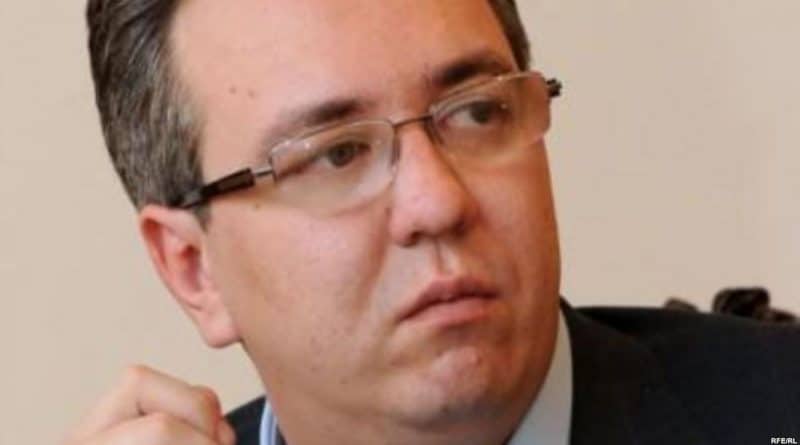UN Committee: Kyrgyzstan violated the rights of lawyer Eliseev
The UN Human Rights Committee recognized that Kyrgyzstan violated the rights of lawyer Alexei Eliseev to a fair and public trial in a number of civil and criminal cases.
The published document contains the arguments adduced by Alexei Eliseev. Thus, he argues that the state’s reaction to the complaint filed by him and some other applicants from Kyrgyzstan was an intention to amend the Constitution of Kyrgyzstan in the part that provides for the primacy of international law over the national legislation.
Several state media have openly discussed the link between these complaints and the need to preserve the country’s “sovereignty”. According to the author of the complaint, this shows that Kyrgyzstan practices “systematic discrimination and violations” of the author’s rights, making him out an “enemy of the people”. In addition, Eliseev pointed out that President Atambayev was personally involved in his prosecution through the courts, prosecutors and other officials, and that the government kept this information secret. One of the goals of President Atambayev’s campaign was to prevent the author from returning to Kyrgyzstan, as in this case the author would expose the crimes committed by the President.
The Committee’s view doesn’t mention the political motives behind the persecution of Aleksey Eliseev. However, it says that the presented facts indicate that the authorities of the Kyrgyz Republic deliberately didn’t inform Eliseev of the charges against him and numerous court proceedings, and the conclusions drawn by the courts in these processes are not fair.
The Committee took note of Kyrgyzstan’s argument that the author hasn’t fully exhausted domestic legal protection’s potentialities because he didn’t file cassation or supervisory review requests. As well as the author’s argument that he wasn’t informed of either the criminal charges against him, or of the trials and subsequent sentences and penalties, and that, as a result, he was unable to adequately defend himself and file cassation appeals within the stipulated short period of time. Moreover, his lawyer’s request for appealing was rejected and the lawyer himself wasn’t recognized as the author’s representative.
It’s noted that in some cases he was represented by an assigned lawyer, who didn’t file any complaints. On the basis of the above circumstances and in the absence of any information or clarification on the merits from the state party, the Committee considers that the requirements of Article 5, paragraph 2 (b) of the Optional Protocol don’t prevent it from considering this part of the author’s claims on the merits.
As a result, the UN Human Rights Committee ruled that, in accordance with the International Covenant, the authorities of Kyrgyzstan are obliged to provide Aleksey Eliseev with effective legal protection, to pay sufficient compensation, and the state is also obliged to take all necessary measures to prevent such violations in the future.
“The decision of the Committee is important for the formation of judicial practice in the Kyrgyz Republic by setting a precedent for cases of trial in absentia. The Committee found that the complainant’s case didn’t respect the minimum human rights guarantees in the criminal proceedings against him such as: the right to be informed in an accessible language about the nature and grounds of the charge; the right to a defense; the right to review the sentence by a higher court in accordance with the law. The violation of such rights irreparably undermined the fairness of all court proceedings and cannot be recognized as fair,” lawyer Arsen Ambaryan commented on the decision of the Human Rights Committee.
Now, the expert notes that the state must take measures to implement the Committee’s views and inform the Committee within 180 days
“The state has the instruments – an appeal by the Prosecutor General’s Office to the Supreme Court with a proposal to cancel all decisions in this case. If the state doesn’t do this within the specified time period, then the applicant, within the framework of the Criminal Procedure Code, can do it on his own. If the Supreme Court cancels all decisions of the lower courts, then the case will be sent to the prosecutor to correct violations,” the lawyer said.
REFERENCE
Alexey Eliseev is considered one of the closest supporters of Maxim Bakiyev, the son of fugitive Kyrgyz President Kurmanbek Bakiyev. During Bakiyev’s presidency, Eliseev worked as a member of the CEC, and later as deputy head of the Central Agency for Development, Investment and Innovation.
In addition, in the period from 2006 to 2009, Eliseev was repeatedly elected to the boards of directors of several commercial banks in Kyrgyzstan (Amanbank, Promstroibank and Asia Universal Bank) as Deputy Chairman and Chairman of the Board of Directors.
Also in February 2008, he conducted a legal examination of agreements submitted by the Kyrgyz government to the Parliament concerning the largest gold mining project in Kyrgyzstan “Kumtor” (now external management has been introduced at the deposit – author). Eliseev was appointed Chairman of the Board of Directors of Kyrgyzaltyn OJSC, owned by the Kyrgyz government and holding shares in the Canadian public company “Centerra Gold” Inc. on behalf of Kyrgyzstan. In addition, he was a member of the Interdepartmental Working Commission on the project “Kumtor”.
At the time of the coup d’état in Kyrgyzstan on April 7, 2010, Eliseev was on a business trip to the United States. At that time, Eliseev made a number of public statements with a negative assessment of the activities of Mr. Atambayev, who was then running for president. In addition, Eliseev presented evidence to the Prosecutor’s Office of Kyrgyzstan that the money of the Development Fund had disappeared during the activities of the provisional government, which came to power as a result of the coup d’état on April 7, 2010. However, this contradicted the official position of the new authorities, which for this reason also prevented the return of Eliseev to Kyrgyzstan.
In this regard, Eliseev moved to Latvia in April 2010, where he received the status of a political refugee.




